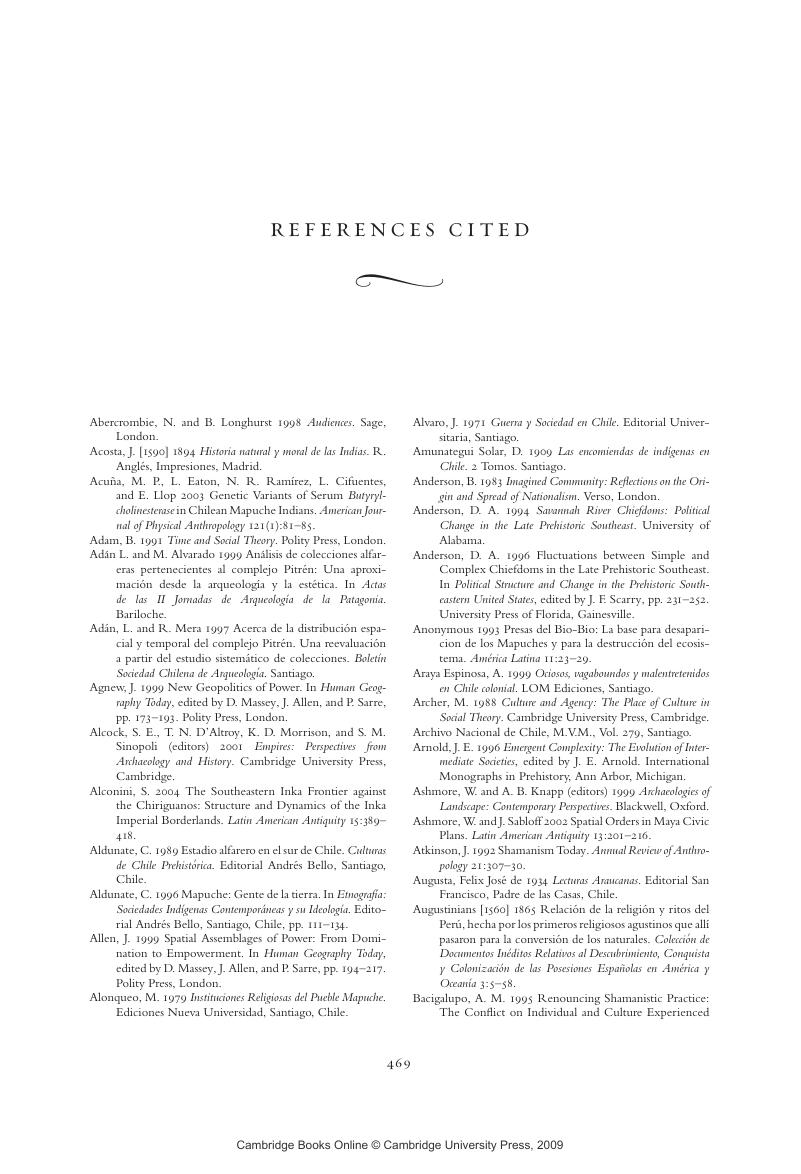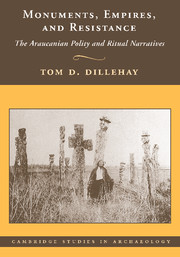References Cited
Published online by Cambridge University Press: 27 July 2009
Summary

- Type
- Chapter
- Information
- Monuments, Empires, and ResistanceThe Araucanian Polity and Ritual Narratives, pp. 469 - 480Publisher: Cambridge University PressPrint publication year: 2007



